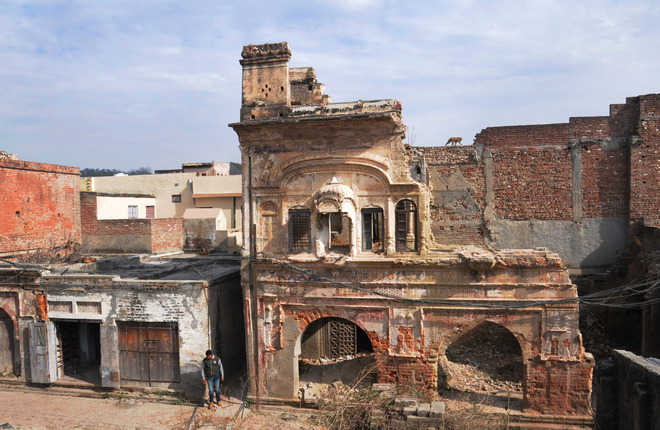Jaijon gets rail connectivity to Amritsar
Aakanksha N Bhardwaj
Tribune News Service
Jalandhar, January 17
There was a reason to cheer for residents of Jaijon, where one of the biggest markets of Asia was once in existence, on Thursday as a train from Jaijo to Amritsar was inaugurated.
Earlier, the residents used to feel disconnected from nearby areas. Jaijon, which is also known as Jaijon Khas and Jaijon Doaba, is located in Mahilpur subdivision of Hoshiarpur.
Sarpanch Ashok Dutt Lakhanpal said to date, the train from Jaijon used to stop at Jalandhar, but now it had been extended to Amritsar.
The sarpanch added that it would help the residents reach the Himachal side as well. He said there was a time when six to seven buses used to stop at Jaijon. Now, not even a single bus stops here, he said.
A local resident said, “Earlier, we had to travel long distances to board buses and then reach Amritsar and other places. Now, the train will help us reach the destinations with ease.”
Once municipal committee, now gram panchayat
The village, having a population of less than 2,000 people, is situated around 80 km from Jalandhar.
Here one can find an empty 250-kg ‘galla’ (cash box) with six inbuilt locks lying in the open. Most walls of some of the three-storey shops and havelis have receptacles for keeping lamps to light up the place. These are still covered in soot and one can see traces of the black smoke.
Jaijon Khas was a municipal committee in 1950. Now, it has been reduced to a gram panchayat. In 1950, its population was around 15,000.
At present, the polutaion has whittled down to 1,257. According to Jaijon residents, “special guns” were placed to sound the alarm and warn traders in case of any attack.
In 1917, a rail line reached Jaijon, the stones of which were transported to other parts of the country for building rail tracks.
Rakesh Kumar Jain, a shopkeeper in the area, refers to his ancestors who told him how Jaijon was a bustling, round-the-clock market, whose passages were clogged with customers and camels, horses and ponies carrying goods.
He said at that time, there were many markets such as the Khanna market, Sood market and Jain market with around 1,000 shops. But all of them eloped with time.
Now with this achievement, Jaijo residents are hopeful of area’s development.









